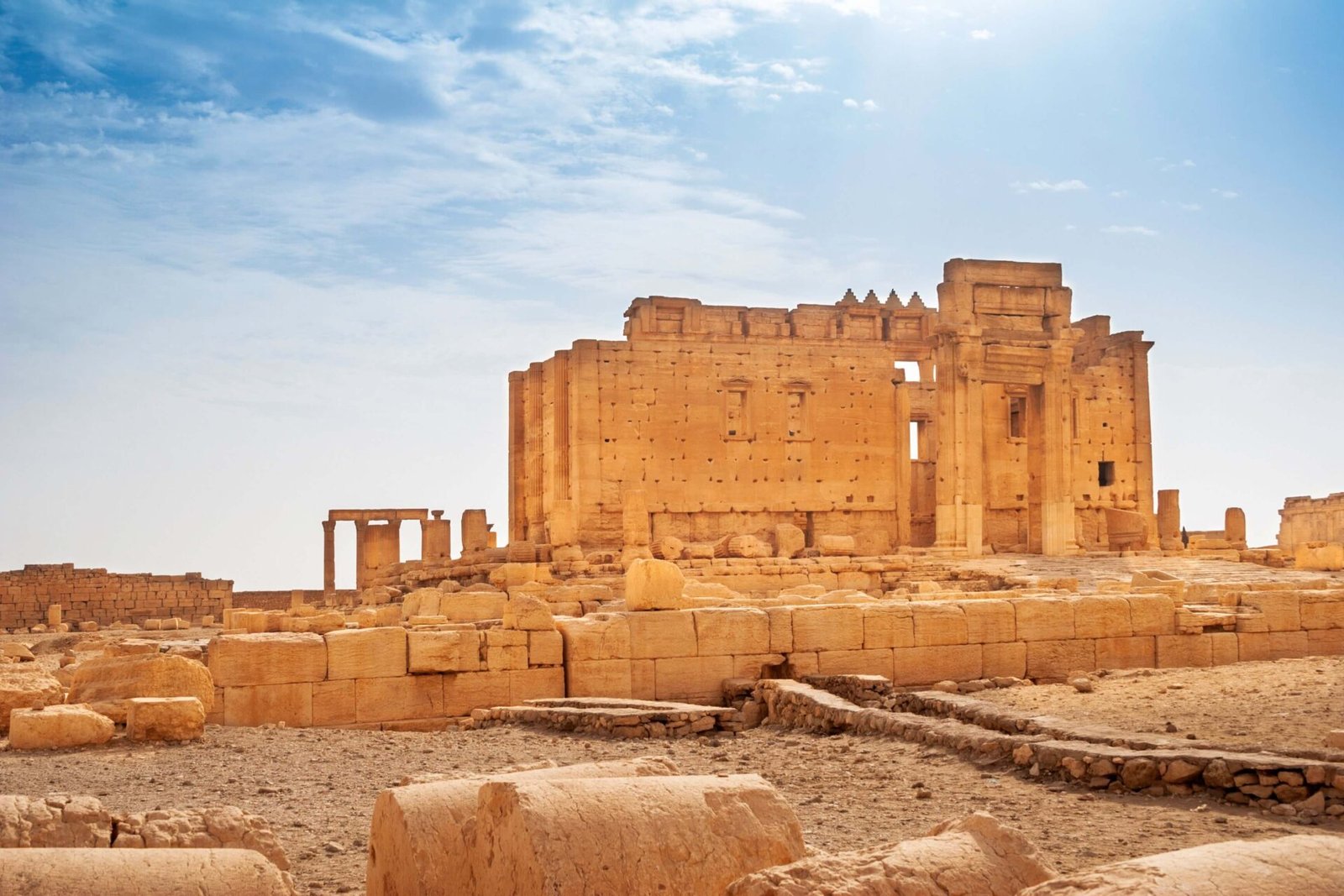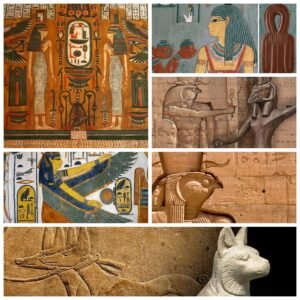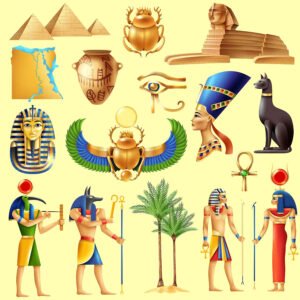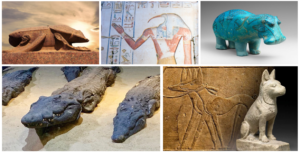Sumerians were famed for their cuneiform writing system, consisting of wedge-like marks impressed with a stylus on clay tablets.
Sumerians were the ancestors of modern state governments. They created laws and fought wars with other city-states. Furthermore, their contributions to religion, art, architecture and culture had an immense influence over later generations of people, including biblical writers.
You may also like: The Ancient Sumerian Civilization
Religion
Even under harsh natural conditions, Sumerians managed to build cities and establish a social system that allowed their people to live peacefully and prosperously. They created writing systems, wrote their legal codes, organized public education systems and formed powerful states which enforced justice across the land while protecting individual city rulers from becoming too powerful – all significant achievements in building civilization. It marked an early step on their journey.
Sumerians believed in an active godhead who could be communicated with through prayer, as their religion featured over 3,000 gods and goddesses. Priests played an essential role as they knew how best to appease these deities and satisfy their wishes.
Sumerian gods often resembled humans in appearance and behaviour, appearing human-like and needing food, shelter and water, similar to people worshipping them. Although immortal, their divine aura called melammu provided strength in battle and assisted kingship while maintaining universal laws of nature.
According to their creation myth, the gods were children of Nammu (primal waters) and Ki and An (earth and sky gods). After mating with each other and having children like Enlil, who ruled heaven over earth. After creating humans from clay for work purposes and giving each one an individual destiny (like being named King or Great Man by an inscription), they made man in their image in their image for work purposes. Each god had different roles that they assigned him, for instance, using Enlil, who separated heaven from earth as his domain before creating him from clay for their use. Then came humanity’s work! Afterwards, gods decided that each would know all laws that govern existence whilst ruling it as their wish – thus creating them into reality so legal (king, meaning great man), along with an inscription chronicling all his achievements.
Technology
The Sumerians made numerous technological contributions that laid the groundwork for modern society. They invented writing (cuneiform), established legal systems such as Hammurabi’s Code and wrote significant pieces such as Gilgamesh’s Epic of Gilgamesh. Furthermore, copper weapons revolutionized warfare, while Mesopotamian wheels are thought to have been first utilized by Sumerians in their chariots.
Mesopotamia’s harsh natural environment also contributed to its civilization’s rise. Rivers deposited silt onto floodplains essential for crop production; Sumerians quickly mastered irrigation methods to produce enough food to support themselves and their city-states.
Their innovations also included learning to make bricks from clay, which allowed them to build more houses and larger cities more quickly. This innovation also freed people up from farming so they could pursue other occupations, such as craftspeople or merchants.
As part of their innovation, Sumerians developed an advanced water distribution system to supply irrigation. Irrigated land became more fertile and allowed Sumerians to cultivate nutritious crops that were also highly valued trade commodities among nearby societies.
Sumerians were among the earliest civilizations to develop an integrated system of mathematics and astronomy. They divided a day into 60 minutes and probably were among the first people to establish how long a year was, measuring distance with compasses as a way of measuring length.
City-States
Sumerians invented written language, the the plough and sailboat technology, and many other innovations – beginning around 3000 BCE when walled cities first appeared there. Furthermore, they developed a complex social system, religious beliefs divided between competing factions, and even created the first legal code – all inventions made possible thanks to Sumerian ingenuity.
People resided in city-states, which consisted of prominent temples dedicated to each city’s patron god and surrounding farmland, enclosed by massive walls with an accompanying ziggurat as defences. An appointed king or other leader ran each political unit.
These cities flourished through agriculture and trade. Farmers raised barley, lentils, wheat, chickpeas, dates and vegetables while fishing for fish and fowl, using oxen and donkeys as primary beasts of burden, though some also employed sheep and goats. Slaves were employed but weren’t the primary labour force.
Priest-kings encouraged agriculture and organized farming within city-states. They built canals and channels to irrigate their fields, helping Sumerians produce crops they could sell as food to generate wealth for prominent temples and ziggurats.
Many goods went up and down the Tigris and Euphrates Rivers for trade. People brought cloth, jewellery, spices and wine or beer from other places as trading commodities; banquets often featured wine or beer as the preferred beverages.
Sumerians believed in an order created by gods, with Marduk as its most revered god of war being their primary deity. Sumer’s culture mixed with its neighbours, such as Amorite Babylon under Hammurabi; however, its social customs, laws, and views on women were distinct from Egypt or Greece.
Agriculture
The Sumerians had an advanced system for cultivating food. Using canals and ditches to control water in fields for cultivation, they ploughed and raked fields to produce high yields of grain – typically barley instead of wheat due to dry conditions in southern Mesopotamia – before employing irrigation to guarantee that their crops would continue growing.
Sumerian civilization was an early centre for culture, religion, language and agriculture that eventually gave birth to city-states. Their achievements include inventing many vital inventions that remain useful today, such as arithmetic, the 12-month calendar with 60 hours, 60 minutes and 60 seconds clock, military formations, and some of the earliest laws and writing systems. They also established schools and created vast quantities of literature, such as mythological tales like Gilgamesh’s Epic, and literary histories that inspired later writers like those who composed the Bible.
Sumerian society was organized around a temple-centered system of social organization that gave Sumerians the means they needed to survive and prosper despite difficult living conditions. Priest-kings served as leaders during battle, ensured gods’ favour through temple building and offers, maintained city walls, established irrigation canals for farming purposes and enforced justice.
Sumer was home to some of the most powerful rulers in Mesopotamia during ancient times. Their reign could take many forms; for instance, Eannatum conquered parts of Elam around 2500 BCE, while Lugalzagesi overran much of Sumer around 2330 BCE. Additionally, their monumental architecture can be seen at Lagash and Uruk; trade regulations were managed through them while roads were also constructed under them.
You may also like: Ra – Supreme Deity in Ancient Egyptian Pantheon
Trade
Sumerians were among the earliest civilizations to build cities and create complex societies with various advances such as writing and monarchial governance. This early and vital system later spread throughout human history and was adopted by other civilizations across different regions.
Mesopotamian city-states were among the first to use writing as a form of communication, commerce, and record-keeping. Starting off using pictograms drawn on clay tablets as receipts or records of goods purchased or sold, eventually, these evolved into what we know today as the cuneiform system.
On these ancient tablets have been discovered detailed and organized records of rations, taxes and agricultural work as well as rules for their favourite board game – as well as rules of their favourite board game! The Sumerians were an energetic tribe of farmers, traders and sailors. Their religion was polytheistic, with many gods that took human forms being worshipped at temples built into massive towers called ziggurats.
Trade was essential to Mesopotamian communities during its early history. Grain, vegetables, meat, leather products and reed products were readily available as domestic commodities in Mesopotamia; plus, there were rich reserves of bitumen and other industrial minerals that could be exported overseas.
The Sumerians established trade networks along the Tigris and Euphrates rivers as far west as Anatolia (modern Turkey), including overland routes that extended west to the Zagros Mountains, then east through India and Pakistan into the Indus Valley of modern India and Pakistan. Eridu played an active role in this trading network before 5000 BCE, possibly trading even with regions as far as China!




